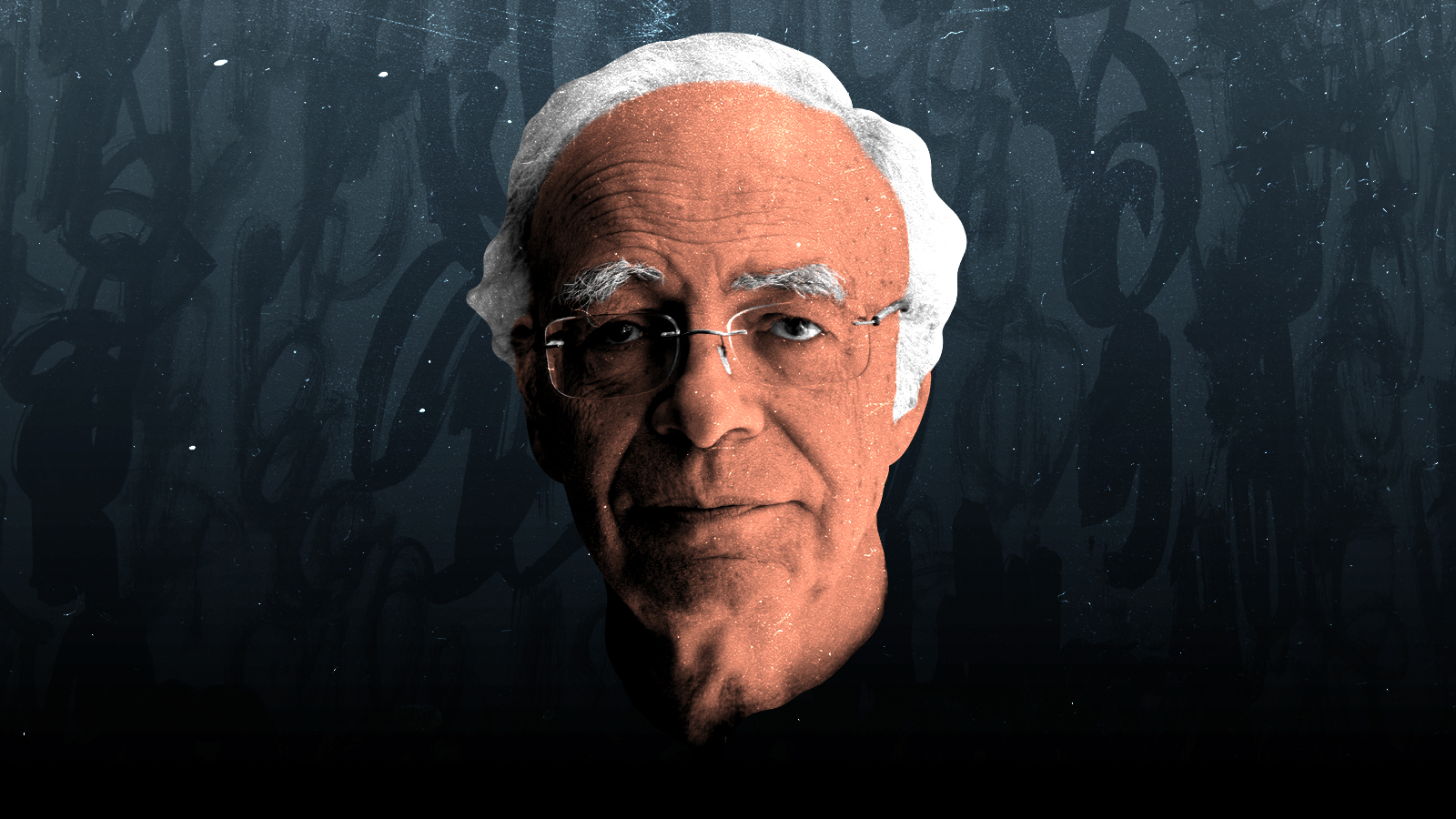The trendy philosopher who just won $1 million


A free daily email with the biggest news stories of the day – and the best features from TheWeek.com
You are now subscribed
Your newsletter sign-up was successful
It's been a long time since philosophers had to fear the fate of Socrates, who was executed in ancient Athens for atheism and corrupting the young. Still, it's rare for philosophers to receive great monetary rewards for their work of posing provocative questions that skewer popular pieties. That makes it all the more surprising that Princeton University's Peter Singer has won a $1 million prize from the Los Angeles-based Berggruen Institute. (Past recipients include public-health-advocate Paul Farmer and the late Supreme Court Justice Ruth Bader Ginsburg.)
Singer is best known for advocating a form of utilitarianism — the view that ethics should be concerned above all with promoting the greatest good for the greatest number of people. That might sound reasonable at first sight, but it entails certain other views that contradict our moral intuitions. Singer is famous (or infamous) for denying any moral distinction between animals and human beings, for example, and he grounds rights in the capacity to feel pleasure and pain and develop preferences on their basis. This implies that infanticide of severely disabled newborns is acceptable but factory farming and experimentation that causes pain to animals is not. (Singer is a hero to those who champion animal rights but widely despised by disability-rights activists.)
In addition to eliding the distinction between humans and animals, Singer also insists that giving any kind of ethical priority to one's own family, friends, or fellow countrymen over people in other parts of the world is immoral. What counts is suffering, wherever it is found, and the duty to alleviate it.
The Week
Escape your echo chamber. Get the facts behind the news, plus analysis from multiple perspectives.

Sign up for The Week's Free Newsletters
From our morning news briefing to a weekly Good News Newsletter, get the best of The Week delivered directly to your inbox.
From our morning news briefing to a weekly Good News Newsletter, get the best of The Week delivered directly to your inbox.
The result is a form of moral reasoning at once utterly divorced from place, attachment, and many commonsense moral intuitions — and also somehow very much rooted in the assumptions inculcated by a certain kind of Western progressive who finds metaphysical claims (about, say, innate human dignity) and parochial solidarity keenly distasteful. In this respect, Singer's thought, so hostile to prejudice, has the effect of flattering the prejudices of many in his own class.
Maybe the fact that Peter Singer has been rewarded with a generous prize isn't so surprising after all.
A free daily email with the biggest news stories of the day – and the best features from TheWeek.com
Damon Linker is a senior correspondent at TheWeek.com. He is also a former contributing editor at The New Republic and the author of The Theocons and The Religious Test.
-
 Will increasing tensions with Iran boil over into war?
Will increasing tensions with Iran boil over into war?Today’s Big Question President Donald Trump has recently been threatening the country
-
 Corruption: The spy sheikh and the president
Corruption: The spy sheikh and the presidentFeature Trump is at the center of another scandal
-
 Putin’s shadow war
Putin’s shadow warFeature The Kremlin is waging a campaign of sabotage and subversion against Ukraine’s allies in the West
-
 Is a social media ban for teens the answer?
Is a social media ban for teens the answer?Talking Point Australia is leading the charge in banning social media for people under 16 — but there is lingering doubt as to the efficacy of such laws
-
 Why are American conservatives clashing with Pope Leo?
Why are American conservatives clashing with Pope Leo?Talking Points Comments on immigration and abortion draw backlash
-
 Questions abound over the FAA’s management of Boeing
Questions abound over the FAA’s management of BoeingTalking Points Some have called the agency’s actions underwhelming
-
 'Immigrant' Superman film raises hackles on the right
'Immigrant' Superman film raises hackles on the rightTALKING POINT Director James Gunn's comments about the iconic superhero's origins and values have rankled conservatives who embrace the Trump administration's strict anti-immigrant agenda
-
 Disney is still shielding Americans from an episode of 'Bluey'
Disney is still shielding Americans from an episode of 'Bluey'Talking Points The US culture war collides with a lucrative children's show
-
 Jony Ive's iPhone design changed the world. Can he do it again with OpenAI?
Jony Ive's iPhone design changed the world. Can he do it again with OpenAI?Talking Points Ive is joining OpenAI, hoping to create another transformative piece of personal technology. Can lightning strike twice?
-
 Is method acting falling out of fashion?
Is method acting falling out of fashion?Talking Points The divisive technique has its detractors, though it has also wrought quite a few Oscar-winning performances
-
 Wicked fails to defy gravity
Wicked fails to defy gravityTalking Point Film version of hit stage musical weighed down by 'sense of self-importance'
